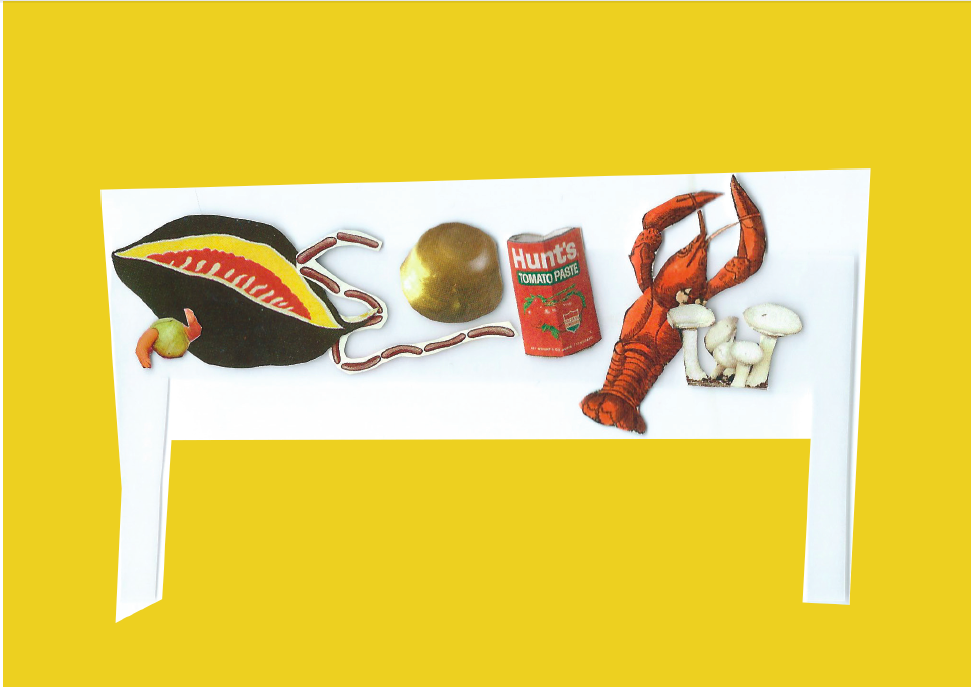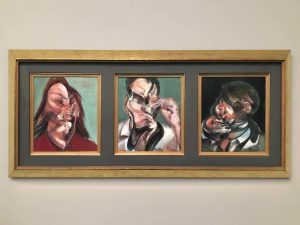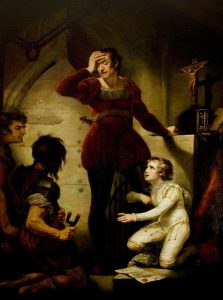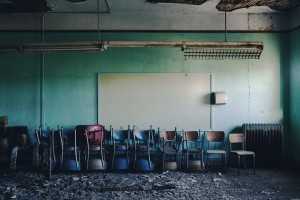
From the archives: Dinner with Lucien Freud, 1983
by Katy Jones, Susan Irvine | September 8, 2015
Once Lucian Freud was asked to paint the portrait of a former Principal of Jesus College. “A charming physics don asked me if I would do it. I rather liked the idea of being up there amongst a lovely collection of Elizabethan works, but the problem was that I find it difficult to paint people I don’t know. So, the don invited me to a Guest Night at High Table during which I took meaningful sidelong glances at the Principal and eventually agreed to paint him for a rather phenomenal fee. The Principal came along to three sittings in all, but after several hours of, ‘what d’you think of that stuff painted in little dots and dashes, eh?’ I realised that this man was simply unbearable… I’ve spent the last fifteen years waiting for his obituary to appear in The Times. Eventually it did.” He laughed. “You know, I was really worried when The Times went on strike that I was going to miss it.”
It’s several years since Lucian Freud has given an interview and he explained why he had decided to talk to us. “The signatures on your letter look as though you wrote them whilst doing a handstand. I was so intrigued, I decided to invite you to dinner.”
It was arranged to meet at the eleventh hour in a Greek restaurant in a quiet mews near Queensway. There, amongst the taramasalata and dolmades, sat Lucian and his daughter Bella.
“I often worked late into the night and keep unpredictable hours,” he told us, “That’s why we had to meet so late.” He has day paintings and night paintings, working on several at one time because the models can’t sit for too long. He mainly paints people he knows intimately, conveying a sense of their whole personality rather than catching a fleeting image. He pointed out that he sometimes liked to paint people he disliked but found fascinating.
Absorption in his work is so complete for Lucian Freud that even his mother (of whom he is very fond) does not have his address in case of emergencies. Apart from a luncheon in Oxford and breakfast in Bristol, he has not been out of London for three years. “London is sufficient for me. I love walking in the streets and feeling the sense of the past – that Eliot has lived here too. I know this city so well, I hate discovering that a building has been begun and finished before I have even become aware of it.”
An observer of the world who nevertheless does not feel pressurised to participate in it, he talked of the dichotomy between the artist and the man of action. He reads five newspapers a day: on the Falklands Crisis he said, “I’m glad they won”, indicating both his isolation and involvement.
He was not ashamed to admit his lack of moral conscience about world affairs, caring much more deeply about his friends. “The death of friendship is worse than the death of a friend,” he quoted from Byron. This attitude seems to be part of the creation of a singularly intense world centred round an almost objective fascination with his own desires and perceptions.
He disdains pretension in art, and mystification. “Why do people talk about ‘gut reaction’ to art? They never say they have a gut reaction to food,” and disagrees with the maniacal labelling used by art critics. “You know when a work of art is good by its empirical and intuitive appeal. Certain individual works of art are great, you can’t group them by artist or movement.”
“The Ingres of existentialism” is how Herbert Read referred to him, but Lucian Freud defies categorisation. “Though it’s very flattering to be compared to Ingres, I don’t find the label relevant. Existentialism was just a passing phase in post-war Paris, it embodied no great ideas. Whereas the ideas of Nietzsche are still significant and relevant today.”
Other great figures he admires include Baudelaire, (“you don’t even need to understand the language, the sounds are enough”), Robin, Mondrian (“full of energy”), Stravinsky, and Fats Waller. He admires Yeats as an artist who was capable of developing from a minor lyric poet to a great poetic realist. Most people, he said, cannot change after the age of three.
One artistic medium he no longer likes, however, is the cinema. He used to go often, taking his pet hawk, but found it depressing after a while. “I felt I’d been told a lot of lies,” he said.
He occasionally watches TV but only for the racing as he likes to gamble and is a great lover of horses. He used to go to the races 8 or 9 times a year and had horses of his own, including a pink one. (“Well, pinkish,” said Bella.) “If I wasn’t able to paint, I’d probably work with horses,” he added.
He sees a clear connection between animals and people. “It’s funny how people always think their clothes are so much a part of them. In fact they often look like animals dressed up – quite ridiculous.” But he’s interested in clothes, and he himself likes to look “negotiable”. He objected to putting one of his famous nudes on the front of his new book. Instead the cover is an untypical dense undergrowth. “Vine leaves on the outside and all the meat on the inside. Based on a Dolmades.”
Outside, and several bottles of retsina later, we jumped into a taxi and when we looked round to thank him, he was gone.




